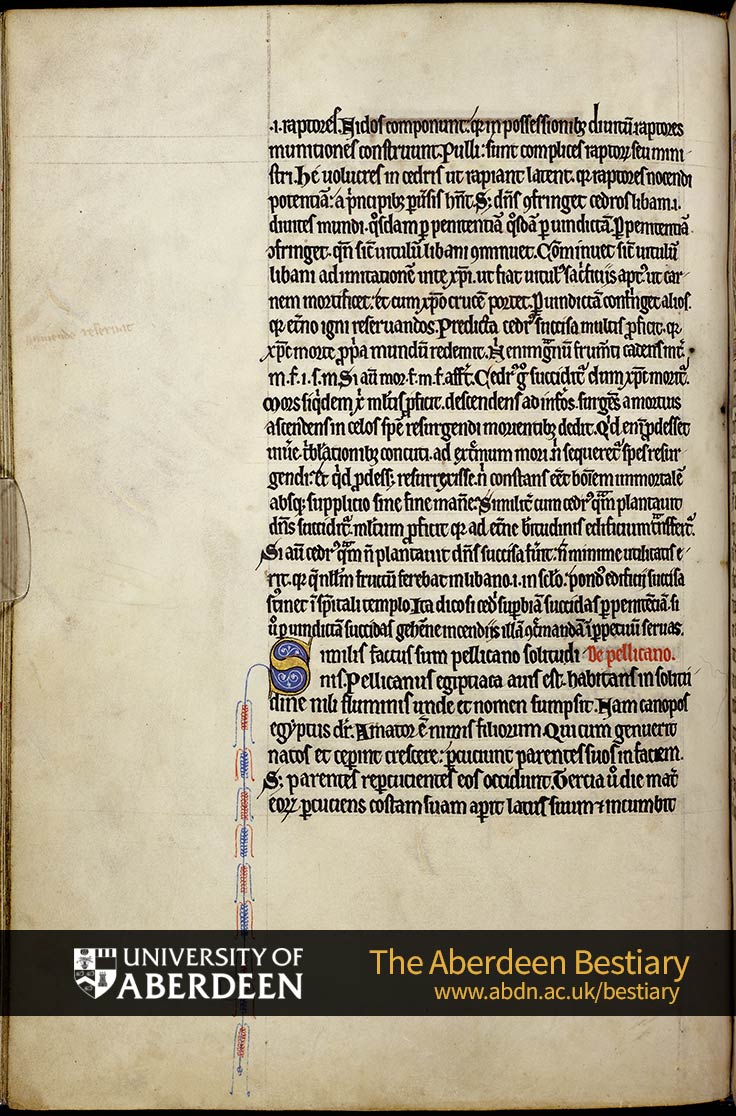Folio 34v - cedars, continued. De pellicano; Of the pelican
that is, birds of prey. They make nests there as robbers build strongholds on the estates of the rich. Their fledglings are their accomplices or henchmen. These birds hide in the the cedars in order to catch their prey, as robbers are empowered to commit crimes by evil rulers.
But 'the Lord breaketh the cedars of Lebanon' (Psalms, 29:5), that is, he will destroy the rich of the world, some by repentance, some by vengeance.
The Lord will break some by repentance as he will humble the calf of Lebanon. He will humble them like the calf of Lebanon (see BSV, Psalmi, 28:6; NEB, Psalms, 29:6), in imitation of the life of Christ, making of each rich man a calf fit for sacrifice, who will mortify his flesh and carry his cross with Christ. He will break others by vengeance because they will be kept for eternal fire.
Many profit from the felling of the aforesaid cedar, as when Christ with his death redeemed the world. 'Except a corn of wheat fall into the ground and die, it abideth alone; but if it die, it bringeth forth much fruit' (John, 12:24). Therefore the felling of the cedar represents the death of Christ. Truly, many benefitted from the death of Christ; by descending into hell, rising from the dead and ascending into heaven, he gave to the dying the hope of resurrection. For what good is there in living afflicted by distress and in dying at the end, if hope of resurrection does not follow? And what good is resurrection unless it is agreed that immortal man lives on without endless punishment?
Likewise, when the cedar which the Lord planted is felled, it is of great profit, because it is transferred to the dwelling-place of eternal bliss.
But if the cedar which the Lord did not plant is felled, it, too, will be of no little use, because the tree which bore no fruit in Lebanon, that is, in this secular world, may, when it is felled, support the weight of the building in a temple of the spirit.
What I have said applies only if you cut down the pride of the cedar with repentance. If, however, you cut it down with vengeance, you consign it to the fires of Gehenna to be reduced forever to ashes.
Of the pelican
'I am like pelican of the wilderness' (Psalms, 102:6). The pelican is a bird of Egypt, living in the wilderness of the River Nile, from which it gets its name. For Egypt is known as Canopos.
It is devoted to its young. When it gives birth and the young begin to grow, they strike their parents in the face. But their parents, striking back, kill them. On the third day, however, the mother-bird, with a blow to her flank, opens up her side and lies

